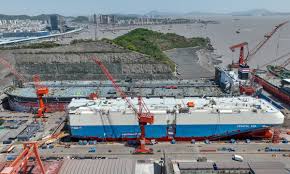Italy: Vintage trains are offering an alternative to the country’s mass tourism hotspots

Rome: As it rolls across Italy’s central regions, a vintage diesel locomotive towing carriages from the 1930s and 1950s crosses the forests of the Majella National park and the Abruzzo highlands, giving tourists on board a glimpse of hidden hamlets.
Across its distance of just over 100 kilometres (62 miles), the so-called Italian ‘Transiberiana’ (Trans-Siberian) rail line, also known as the Park Railway, slips into gorges, snakes into 58 tunnels and braves huge viaducts.
It is the first of some 1,000 kilometres of line to have re-opened under a project by Fondazione FS, part of state-controlled national rail company Ferrovie dello Stato (FS).
The ‘Timeless Tracks’ project takes tourists to forgotten parts of Italy, offering an alternative to the fast-paced mass tourism of the major cities.
“These are tracks that have lived through different eras; they have carried soldiers to the front, cows to pasture… they were mistakenly considered unproductive during the 1960s and 70s but are now once again of value,” says Luigi Cantamessa, who heads Fondazione FS.
Inspired by train travel in Switzerland, the project now carries 45,000 tourists a year across its 13 lines. Fondazione FS expects to open two new ones by 2026, both in the southern region of Sicily.
“What were considered to be the dry branches of Italy’s train network have now proved to be the green shoots,” Cantamessa adds.
“People are used to cities and places, like Florence, that everyone knows… but then there are other areas that need to be discovered. (This) is the right kind of tourism that does not spoil the authenticity of places,” says Norma Pagiotti, a 28-year-old from Florence travelling on the train with two friends.
With arrival numbers above pre-pandemic levels, popular European travel destinations including Venice have introduced measures aimed at managing visitor numbers amid rising concerns about overcrowding.
“The train reminds me of my youth – I feel a bit nostalgic for the things of the past, which were simpler, now everything is fast, short-lived,” says Caterina Quaranta, from Taranto in southern Italy, sitting on the wooden seats of the train.
The trips attract Italians and foreigners, a lot of families and children, younger people who get off to hike and cycle, and older people “who have time to spare”, explains Laura Colaprete, a local guide.
“It’s for those who don’t want mass market, cluttered destinations. A conscious traveller, who is looking for something special,” says Cantamessa of Fondazione FS. “These are not trips that serve you frozen pizza for lunch,” he adds.
After climbing up almost 1,000 metres in altitude, the “Transiberiana”’s first stop is in Palena, a medieval hilltop town known for its breathtaking views over the national park.
Traditional folk music accompanies people getting off the train, with local delicacies such as lamb skewers and soft pancakes made with an iron mould, known as pizzelle, and products by local artisans awaiting them at the station.
“The train helps several small towns around here. This line was a dead line before,” says Gino Toppi, 60, as he helps his wife with the food stall in the small station.
Milan’s Bocconi University recently estimated that for every euro spent by passengers on tickets – which cost between €30 and €70 (£25.50–£59) – up to a further €3 (£2.50) per person is spent on food, accommodation, tours and souvenirs.
That helps to support the economy of villages that have long been losing population due to the dwindling birth rate and younger people leaving for the bigger cities.
“There certainly are benefits; this is a way to show my products,” says Annalisa Cantelmi, a herbalist.





